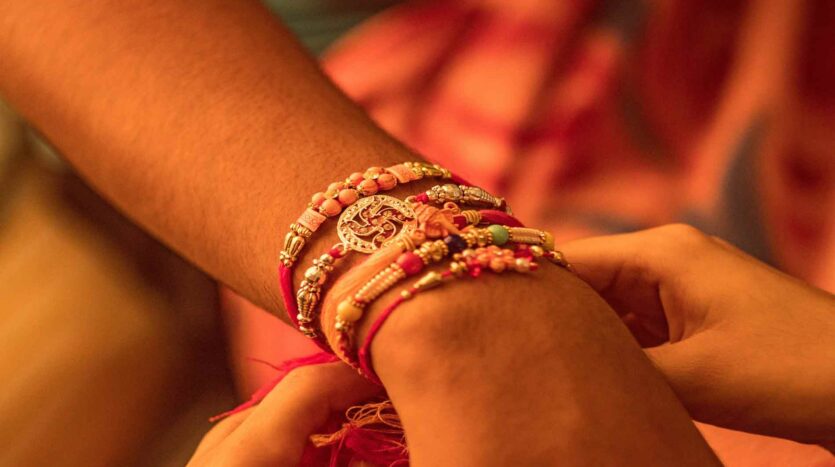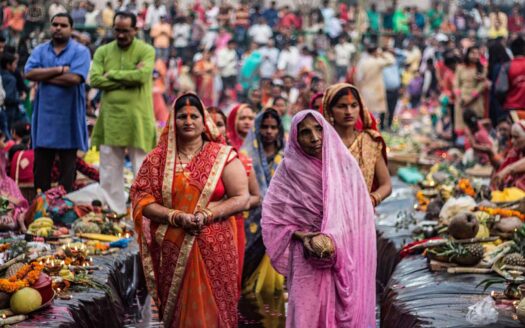Raksha Bandhan: Celebrating the Sacred Bond of Sibling Love
Raksha Bandhan, also known as Rakhi, is a significant Hindu festival that celebrates the unbreakable bond between brothers and sisters. This joyous occasion is observed on the full moon day of the Hindu month of Shravana.
The festival holds immense cultural and emotional significance, as sisters tie colorful threads called rakhi around their brothers’ wrists, symbolizing love, protection, and a lifelong commitment to support one another. Raksha Bandhan not only reinforces the cherished sibling bond but also reflects the values of love, respect, and unity within the family.
Historical and Mythological Significance
Raksha Bandhan carries historical and mythological significance that has been ingrained in Indian culture for centuries. The festival finds its roots in ancient Indian history and is associated with various legends. One such tale dates back to the time of King Bali and Lord Vishnu.
According to Hindu mythology, Vishnu’s wife, Goddess Lakshmi, tied a rakhi on King Bali’s wrist to protect Lord Vishnu, who was bound by a promise to safeguard the king. This act demonstrated the power of the sacred thread and the significance of the bond between siblings.
Another legend revolves around the story of Lord Krishna and Draupadi. When Draupadi tore a piece of her saree to bandage Krishna’s bleeding finger, he vowed to protect her. In return, Draupadi tied a rakhi on Krishna’s wrist, symbolizing their eternal bond. These tales exemplify the essence of Raksha Bandhan, emphasizing the protective nature of brothers and the unconditional love of sisters.
Rituals and Celebrations
Raksha Bandhan is a day of elaborate rituals and heartfelt celebrations. Sisters prepare for the festival by purchasing beautiful rakhis, often adorned with beads, sequins, and decorative elements. On the day of Raksha Bandhan, the family gathers, and the festivities commence.
Sisters perform aarti (a religious ritual involving a lamp) for their brothers and then tie the rakhi around their wrists. This act symbolizes the sister’s love and trust, while the brother pledges to protect and support his sister throughout her life.
After the rakhi is tied, brothers shower their sisters with gifts and blessings, signifying their appreciation for the sacred bond. Sweets and delicacies are shared among family members, adding sweetness to the festive atmosphere. The exchange of gifts and heartfelt sentiments strengthens the emotional connection between siblings and reinforces the sense of togetherness within the family.
Raksha Bandhan is not limited to biological siblings alone. It extends to cousins, close friends, and even neighbors, emphasizing the broader concept of universal brotherhood and sisterhood. In today’s modern society, where families are often geographically scattered, Raksha Bandhan serves as a unifying force, bringing loved ones together and rekindling the spirit of affection and care.
Significance in Contemporary Society
In contemporary society, Raksha Bandhan holds immense relevance, transcending religious boundaries. It celebrates the invaluable role of siblings and promotes gender equality, respect, and harmony. The festival showcases the mutual commitment between brothers and sisters, fostering a sense of security and emotional support.
Raksha Bandhan also highlights the importance of women’s empowerment. As sisters tie rakhis on their brothers’ wrists, it symbolizes their trust and belief that their brothers will protect them from any harm or injustice. This act recognizes the strength and resilience of women and encourages brothers to stand up against gender discrimination.
Furthermore, Raksha Bandhan encourages individuals to reflect on the significance of relationships and the responsibilities that come with them. It serves as a reminder that relationships require constant effort, love, and understanding. The festival encourages siblings to mend any differences they may have and celebrate the special bond they share.
Conclusion
Raksha Bandhan, with its historical and cultural significance, serves as a reminder of the deep-rooted love and respect between siblings. It promotes unity, empathy, and mutual support, fostering harmonious relationships within families and communities.
As we celebrate Raksha Bandhan, let us cherish the sacred bond of sibling love, honor the commitments we make to one another, and strive to create a world where the values of love, protection, and togetherness are cherished by all.




